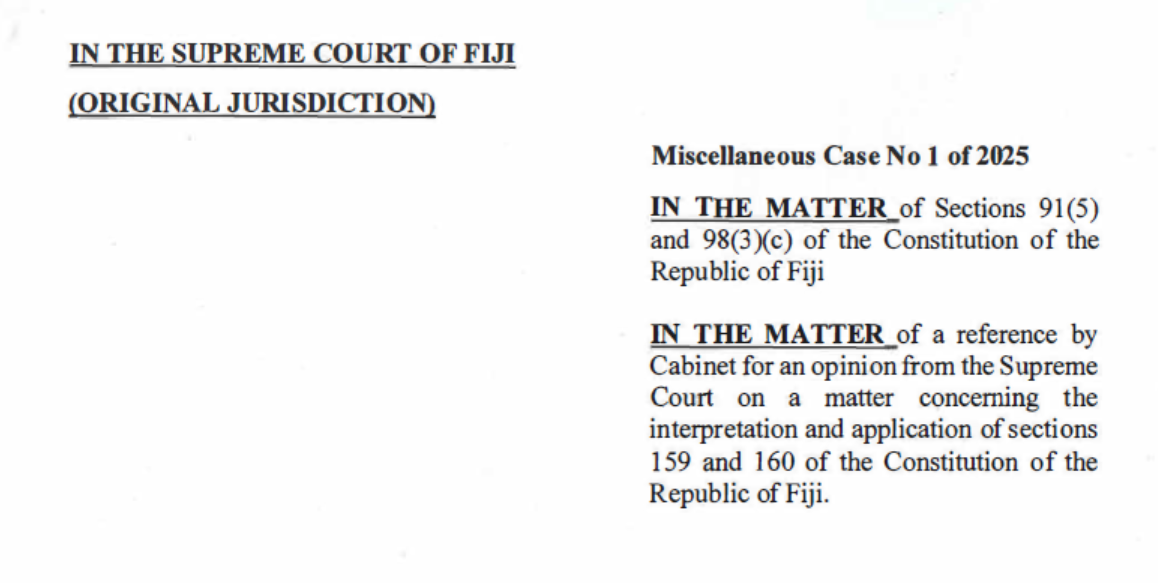The Supreme Court has taken a closer look at Fiji’s 2013 Constitution, identifying significant tensions between its democratic claims and the restrictive manner in which it was adopted and can be amended.
In its detailed ruling issued yesterday, the Court analysed key sections of the Constitution under six themes: foundational values, political participation, international law, the judiciary, immunity, and amendment provisions.
At the heart of the Court’s observations was the contradiction between the Constitution’s stated democratic values and the process by which it was imposed.
While the preamble declares, “We, the people of Fiji,” and section 3(1) promotes the values of democracy, equality, rule of law, and good governance, the Court noted these ideals appear to conflict with the reality of how the Constitution was promulgated, by military decree without public endorsement.
The judges acknowledged the right to self-determination, enshrined in international treaties like the ICCPR (International Covenant on Civil and Political Rights) and ICESCR (International Covenant on Economic, Social and Cultural Rights), both ratified by Fiji in 2018. as a principle inconsistent with the top-down imposition of the Constitution.
“We see both the process that preceded the adoption of the 2013 Constitution and its very restrictive amendment provisions as being in tension with the right of self-determination,” the Court stated.
The Court also highlighted sections 173(4) and 173(5), which effectively block any legal challenge to the Decree that introduced the 2013 Constitution.
These, it noted, stem from the earlier Administration of Justice Decree of 2009.
However, the Court was clear that such provisions do not remove the judiciary’s power to determine the Constitution’s legitimacy or interpret its amendment clauses.
The Supreme Court decided to relax the rigid amendment requirements in the Constitution, describing them as “very restrictive” and incompatible with democratic norms.

